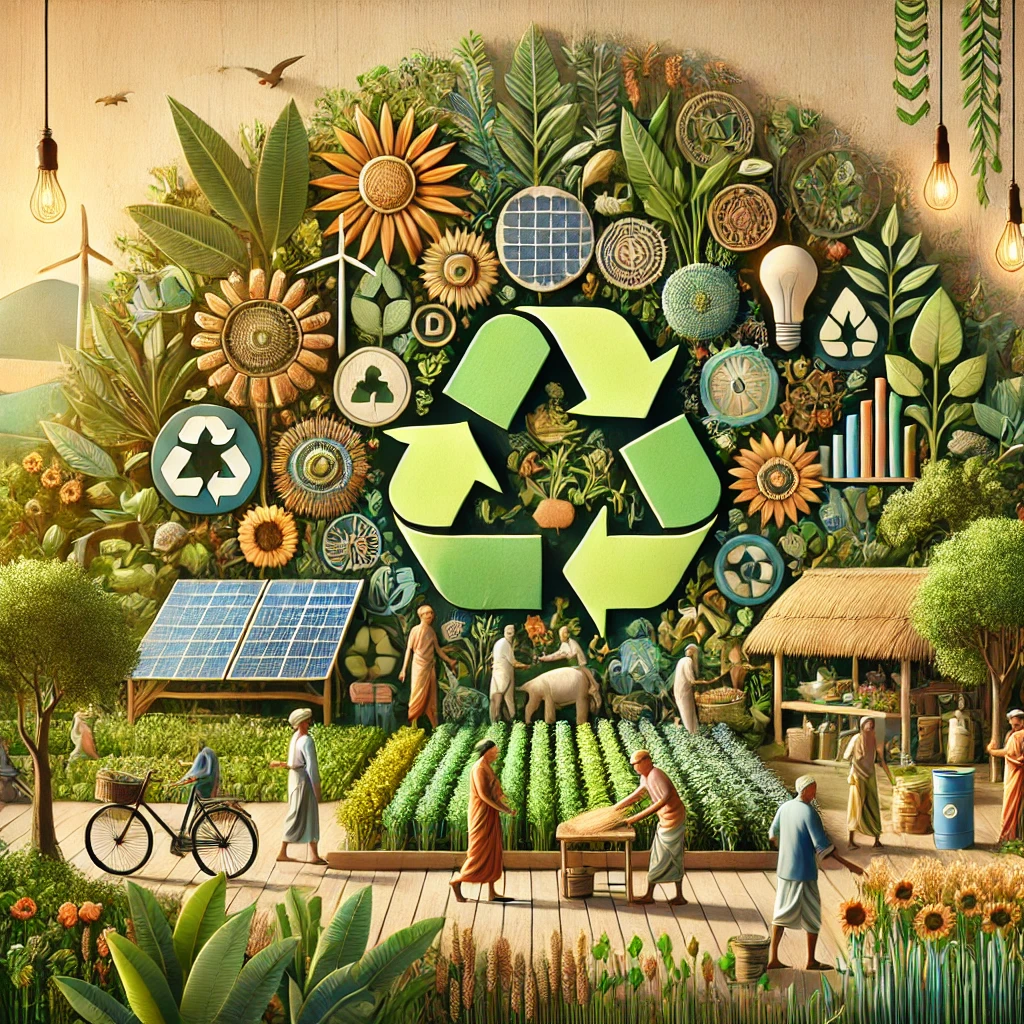Aavmaal: Unlocking the Secrets of Sustainable Living 2025

Aavmaal is more than just a term—it’s a concept that intertwines history, culture, and modern advancements. While its roots run deep in tradition, it continues to evolve, influencing everything from community practices to sustainable agriculture. But what exactly is Aavmaal? Why does it hold such significance in both historical and contemporary contexts?
In this article, we’ll explore the etymology of Aavmaal, its cultural importance, and how it has transitioned into modern applications. We’ll also discuss its impact on environmental sustainability and its role in economic development. Whether you’re looking to understand Aavmaal’s historical relevance or its potential in addressing global challenges, this guide will give you all the insights you need.
Etymology and Symbolism of Aavmaal
The word Aavmaal has a rich linguistic background, carrying deep symbolic meaning across different cultures. Etymologically, it is believed to originate from ancient dialects where “Aav” represents sacred inheritance and “Maal” signifies wealth or treasure. Together, Aavmaal embodies the concept of ancestral wisdom and prosperity—a guiding principle in traditional societies.
Beyond its linguistic roots, Aavmaal holds symbolic value in various traditions. It is often associated with heritage preservation, spiritual well-being, and the interconnectedness of past and present. Many historical texts and folklore depict Aavmaal as a bridge between generations, reinforcing the idea that cultural knowledge must be safeguarded and passed down.
In modern contexts, Aavmaal has evolved into a term that symbolizes the fusion of tradition with innovation. From agriculture to sustainable living, its principles continue to shape contemporary practices, making it more than just a relic of the past.
Historical Foundations of Aavmaal
The history of Aavmaal is deeply intertwined with the traditions and practices of ancient civilizations. Originally, it served as a guiding principle for sustainable living, resource management, and communal harmony. Many cultures viewed Aavmaal as an essential part of their spiritual and economic systems, ensuring prosperity for future generations.
Aavmaal in Early Societies
Historical records suggest that Aavmaal was first practiced by early agrarian communities who relied on eco-conscious farming techniques and resource conservation. These societies believed in maintaining a balance between human needs and nature, which led to the development of sustainable agricultural practices that are still relevant today.
Aavmaal’s Role in Trade and Economy
As civilizations expanded, the principles of Aavmaal influenced trade networks and economic systems. Merchants and traders incorporated its values into fair trade practices, emphasizing ethical transactions and community-driven economic growth. Some historical marketplaces even operated on barter systems inspired by Aavmaal, ensuring equitable distribution of goods.
Evolution of Aavmaal in the Modern Era
Over time, Aavmaal has evolved from being a cultural philosophy to a practical framework for sustainability and innovation. While its traditional roots remain strong, its principles have been adapted to modern challenges, including climate change, food security, and ethical business practices. Today, many organizations and communities strive to integrate Aavmaal into their policies to create a more sustainable and inclusive world.
Cultural Significance of Aavmaal
Aavmaal is more than a historical concept—it is a living tradition that continues to shape societies through customs, rituals, and community practices. Across different cultures, it has played a key role in fostering unity, identity, and sustainability.
Role in Local Traditions, Rituals, and Celebrations
For centuries, Aavmaal has been an integral part of festivals, ceremonies, and seasonal celebrations. Many communities associate it with prosperity and renewal, incorporating it into harvest festivals, religious gatherings, and family traditions. Whether through ritualistic offerings, communal feasts, or symbolic decorations, Aavmaal represents the connection between people, nature, and spiritual well-being.
Influence on Community Identity and Cohesion
Beyond rituals, Aavmaal serves as a cultural anchor, strengthening the bond between generations. It fosters a sense of belonging, ensuring that traditional knowledge and values are preserved. In many regions, the practice of Aavmaal brings communities together, reinforcing shared heritage and encouraging collaborative decision-making in local governance.
Aavmaal’s Relevance in a Globalized World
In today’s interconnected world, Aavmaal continues to influence modern cultural movements. With the rise of sustainable lifestyles and ethical consumerism, its principles are being reinterpreted to promote mindful living, conservation efforts, and community-driven initiatives. From ethical farming cooperatives to eco-conscious businesses, Aavmaal’s essence remains relevant, proving that tradition and progress can go hand in hand.
Aavmaal in Modern Media and Popular Culture
As society evolves, so does the representation of Aavmaal in media, literature, and digital platforms. No longer confined to historical texts and cultural traditions, Aavmaal has made its way into mainstream discussions, art, and entertainment, reflecting its growing influence in contemporary life.
Aavmaal in Literature and Storytelling
Many authors and storytellers weave the essence of Aavmaal into their works, using it as a symbol of wisdom, sustainability, and resilience. Whether in historical fiction, folklore adaptations, or modern fantasy, the concept continues to inspire narratives that emphasize heritage preservation and environmental consciousness.
Influence on Films, Music, and Art
Aavmaal has also found a place in visual arts and performing arts. Filmmakers and musicians have drawn from its themes to create works that celebrate cultural roots and ethical living. Art installations and digital media projects increasingly use Aavmaal’s symbolism to promote messages of harmony, conservation, and mindful progress.
The Digital Age and Aavmaal’s Online Presence
With the rise of digital platforms, Aavmaal has transitioned into the online world. Social media discussions, blogs, and podcasts explore its principles in the context of sustainability, ethical entrepreneurship, and wellness trends. Influencers and thought leaders emphasize how Aavmaal’s values can be applied in modern business strategies, eco-friendly lifestyles, and community-driven initiatives.
The widespread adoption of Aavmaal in pop culture signals a shift toward redefining success through ethical and sustainable means, proving that its essence remains more relevant than ever.
Aavmaal’s Role in Sustainability and Environmental Conservation
One of the most impactful aspects of Aavmaal is its emphasis on sustainable living and environmental conservation. Rooted in traditions that promote harmony between humans and nature, Aavmaal provides valuable insights into tackling modern ecological challenges.
Eco-Friendly Practices Inspired by Aavmaal
Many traditional Aavmaal-based practices focus on preserving natural resources and reducing waste. Some key principles include:
- Sustainable Agriculture—Crop rotation, organic farming, and soil conservation techniques that improve long-term productivity.
- Water Conservation—Traditional water management systems like rainwater harvesting and irrigation techniques that minimize waste.
- Waste Reduction & Recycling—Aavmaal encourages the repurposing of materials, reducing environmental impact through zero-waste living.
Aavmaal’s Connection to Climate Action
In an era of climate change, Aavmaal’s core principles align with global sustainability goals. Communities practicing Aavmaal prioritize:
- Reforestation & Biodiversity Protection—Promoting the planting of native species and maintaining ecological balance.
- Renewable Energy Use—Encouraging the adoption of solar, wind, and alternative energy sources.
- Ethical Consumption—Supporting local, organic, and fair-trade products to reduce carbon footprints.
Modern Applications of Aavmaal in Sustainability
Many organizations and governments are integrating Aavmaal’s teachings into environmental policies. From ecotourism initiatives to community-led conservation efforts, these programs help bridge traditional knowledge with modern sustainability science.
By applying Aavmaal’s wisdom, we can create a more sustainable, eco-conscious future, where progress doesn’t come at the expense of nature.
Aavmaal’s Economic and Social Impact
Beyond its cultural and environmental significance, Aavmaal also plays a crucial role in shaping economic systems and social structures. By promoting ethical business practices, community-driven economies, and social well-being, Aavmaal serves as a blueprint for sustainable economic development.
Aavmaal’s Influence on Ethical Business and Trade
Modern businesses are increasingly adopting Aavmaal’s principles to create fair, transparent, and eco-conscious operations. Some key aspects include:
- Fair Trade & Ethical Sourcing – Supporting local artisans and farmers by ensuring fair wages and sustainable sourcing.
- Small Business Growth & Community Entrepreneurship – Encouraging small-scale industries that prioritize craftsmanship, sustainability, and ethical labor practices.
- Circular Economy Models – Reducing waste through recycling, upcycling, and resource-efficient manufacturing.
Empowering Communities Through Aavmaal
Aavmaal-driven social initiatives empower local communities by promoting:
- Education & Skill Development – Teaching sustainable farming, eco-friendly craftsmanship, and ethical business skills.
- Women & Minority Empowerment – Encouraging inclusive economic participation through accessible entrepreneurship programs and cooperative models.
- Social Welfare & Health Initiatives – Ensuring that economic growth aligns with improved living standards, healthcare access, and well-being.
Aavmaal’s Role in Global Economic Trends
With rising awareness of sustainability and corporate responsibility, Aavmaal’s influence is becoming more prominent in global markets. Many companies are now incorporating its values to meet consumer demand for ethical, eco-friendly products and services.
By integrating Aavmaal’s economic and social principles, businesses and communities can create a balanced system that fosters both growth and sustainability.
Challenges and Future Prospects of Aavmaal
While Aavmaal continues to influence culture, sustainability, and economic systems, its widespread adoption faces several challenges. However, with the right approach, these obstacles can be transformed into opportunities for future growth and global impact.
Current Challenges in Preserving Aavmaal
Despite its deep-rooted significance, Aavmaal faces challenges such as:
- Modernization and Cultural Dilution – Rapid urbanization and industrialization have led to a decline in traditional Aavmaal practices.
- Lack of Awareness – Many people are unfamiliar with the principles of Aavmaal or how they can integrate them into their lives.
- Resistance to Change – Some industries and businesses hesitate to adopt sustainable, ethical practices due to profit-driven motives.
Opportunities for Future Growth
With rising awareness of sustainability, ethical business, and cultural preservation, Aavmaal has the potential to expand globally. Key opportunities include:
- Education and Digital Awareness – Incorporating Aavmaal’s teachings into school curricula, online platforms, and social media campaigns.
- Policy Integration – Encouraging governments to adopt Aavmaal-inspired policies that promote fair trade, environmental conservation, and social well-being.
- Sustainable Business Innovation – More companies are adopting Aavmaal’s principles in their business models, leading to the rise of eco-conscious brands and ethical entrepreneurship.
The Future of Aavmaal
As society shifts towards more responsible and sustainable practices, Aavmaal will continue to play a crucial role in shaping:
- Green economies and eco-friendly industries
- Ethical consumerism and mindful living
- Global movements advocating sustainability and fairness
By addressing challenges and leveraging opportunities, Aavmaal can become a universal model for sustainability, economic ethics, and cultural preservation, ensuring a brighter future for generations to come.
Conclusion: The Enduring Legacy of Aavmaal
Aavmaal is more than just a tradition—it is a way of life that bridges the past, present, and future. Its impact on culture, sustainability, business, and community well-being proves its relevance in today’s world.
By embracing Aavmaal’s core principles, we can foster:
✔ Stronger community bonds through cultural traditions and ethical cooperation.
✔ A more sustainable world by integrating eco-friendly practices into daily life.
✔ Ethical business and fair trade models that prioritize people and the planet.
What’s Next?
As Aavmaal continues to gain recognition, the responsibility falls on individuals, businesses, and policymakers to preserve its values and implement them in meaningful ways. Whether through conscious consumer choices, supporting ethical businesses, or spreading awareness, we all have a role to play in keeping its legacy alive.
Frequently Asked Questions About Aavmaal
1. What is Aavmaal?
Aavmaal is a concept rooted in cultural traditions, sustainability, and ethical living. It promotes harmony between people, nature, and business through eco-friendly practices, fair trade, and social responsibility.
2. How does Aavmaal contribute to sustainability?
Aavmaal emphasizes waste reduction, resource conservation, and ethical consumption. It encourages practices like organic farming, water conservation, and the use of renewable energy to protect the environment.
3. Is Aavmaal only relevant to specific cultures?
While Aavmaal has cultural origins, its principles of sustainability, ethical trade, and mindful living are applicable worldwide. Many modern businesses and communities incorporate these values into their daily lives.
4. How can businesses implement Aavmaal’s principles?
Businesses can adopt Aavmaal by focusing on fair wages, sustainable sourcing, reducing carbon footprints, and supporting local communities. Ethical brands that prioritize these values attract conscious consumers.
5. Can individuals practice Aavmaal in daily life?
Yes! Simple ways to integrate Aavmaal into everyday life include:
✔ Supporting eco-friendly products
✔ Reducing waste and recycling
✔ Conserving energy and water
✔ Choosing ethical and sustainable brands
6. What challenges does Aavmaal face in modern times?
Aavmaal faces obstacles such as modernization, lack of awareness, and resistance to change. However, digital education, policy changes, and consumer demand for ethical products are helping to overcome these challenges.
7. What is the future of Aavmaal?
With increasing global awareness of sustainability and ethical living, Aavmaal is expected to influence eco-conscious businesses, green economies, and social impact movements worldwide.







One thought on “Aavmaal: Unlocking the Secrets of Sustainable Living 2025”